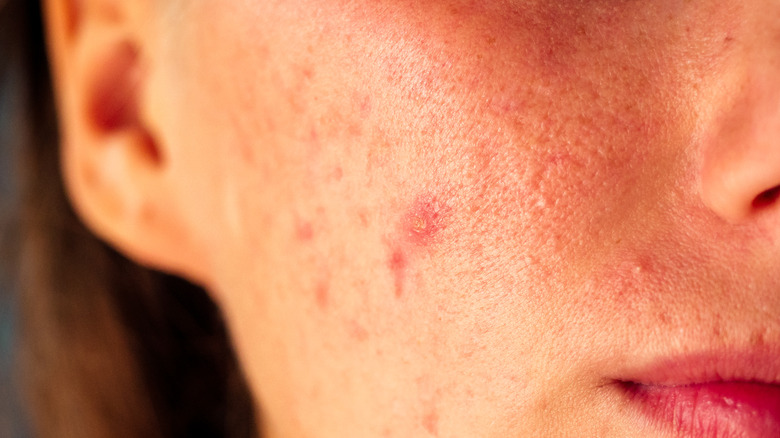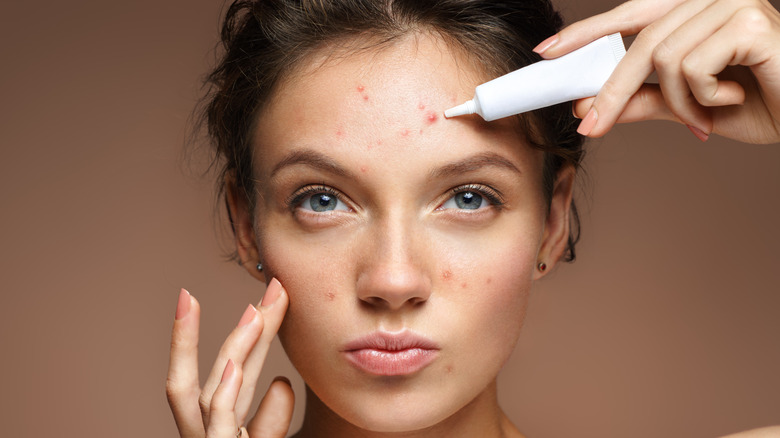The Best Way To Treat Painful Acne
If you have deep and painful pimples on your face, you may have cystic acne. Cystic acne is the most severe type of acne (via the Cleveland Clinic). As opposed to regular acne, cystic acne consists of painful, pus-filled cysts that develop deep underneath the skin. This can occur as a result of oil, bacteria, and dead skin cells getting trapped inside your pores, causing swelling and inflammation in the dermis (or middle layer) of your skin. It can ultimately lead to the formation of boil-like cysts.
While acne cysts can come in all different shapes and sizes, most acne cysts look like large, white, or red lumps under the skin that feel painful and tender to the touch. Due to the severity of cystic acne, typical acne treatments and skincare routines aren't enough to treat it. That's why it's important to consult a dermatologist before using any ointments or treatments on your skin. Acne cysts can cause scarring, so you don't want to do anything to rupture the cyst. That includes not popping your cysts.
Expert-approved treatments for cystic acne
Fortunately, there are some expert-approved treatments for cystic acne that can help minimize the risk of scarring. Although it may seem unorthodox, dermatologists actually recommend icing your acne (via Allure). Applying ice to your acne cysts can help reduce any swelling and inflammation, which can also help shrink the size of your cysts. "Ice-cold temperatures help constrict blood vessels, so wrap an ice cube in a paper towel and hold it against the bump to reduce pimple redness and bring down the swelling a bit," Dr. Joshua Zeichner, a board-certified dermatologist and the director of cosmetic and clinical research at Mount Sinai Medical Center, told Allure.
You can also use a combination of salicylic acid and benzoyl peroxide to help treat your cystic acne. Start by using a facial cleanser with salicylic acid. This should help treat your cysts by drying them out and removing any impurities from your pores. After that, you can follow up with an oil-free moisturizer, which can help hydrate your skin without clogging your pores with any excess oil. To top it all off, apply a benzoyl peroxide spot treatment to your cysts. Benzoyl peroxide can help reduce the number of harmful bacteria on your skin, which can also lower inflammation.


